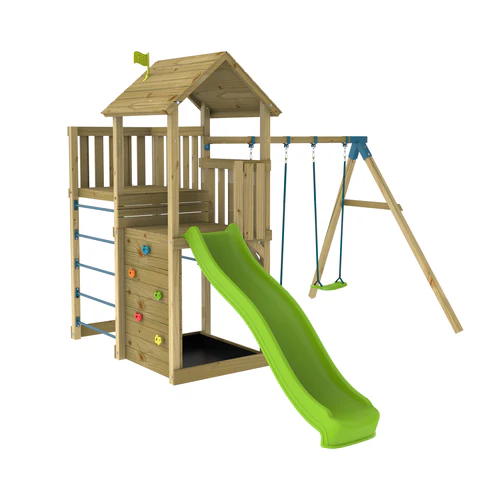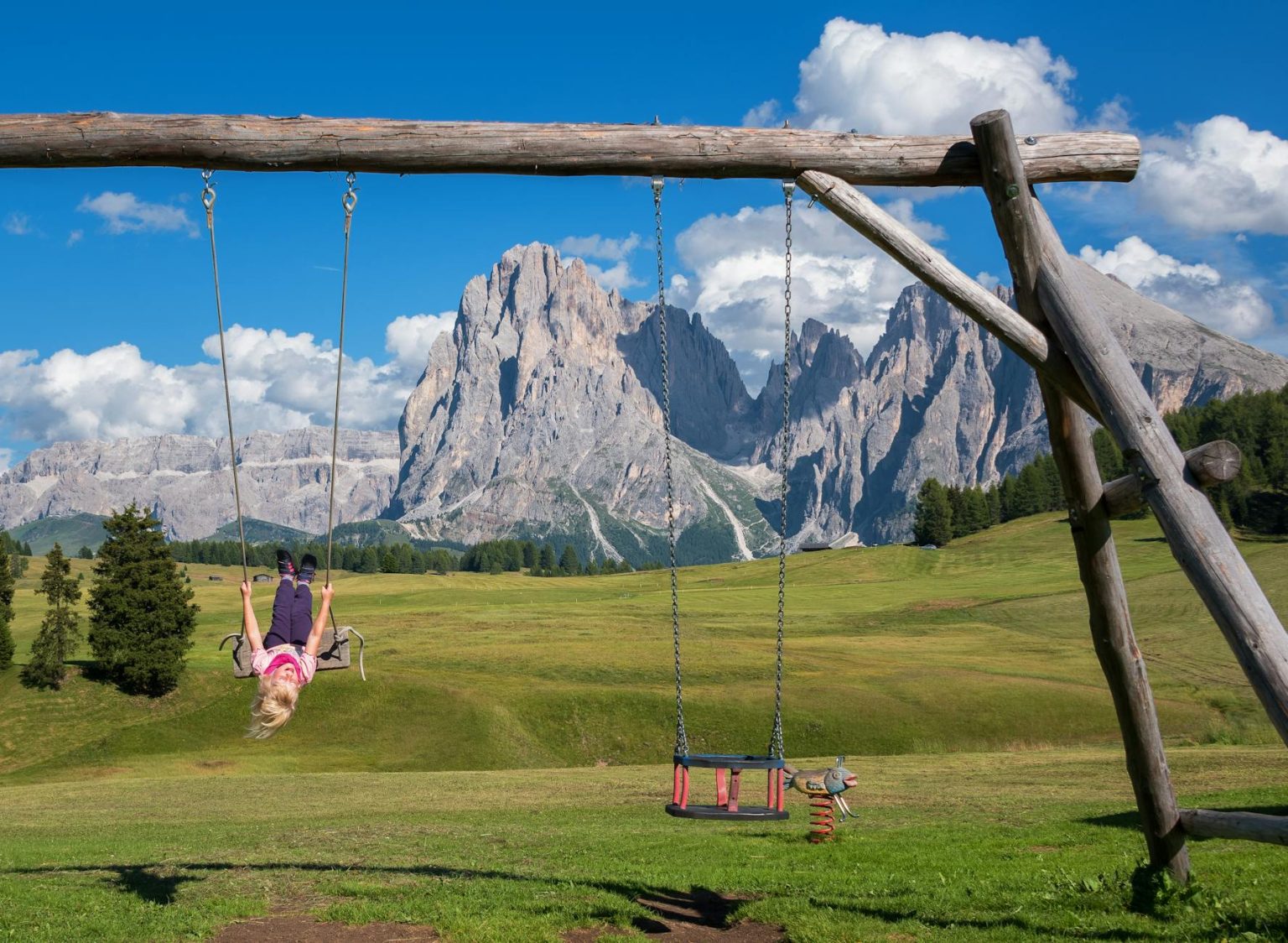Play is often seen as just a fun activity for children, but it is so much more than that. Toys are essential tools that contribute significantly to a child’s overall development. They help children build cognitive skills, enhance social interactions, and develop emotional intelligence. Whether it’s building blocks, role-playing toys, or outdoor play equipment like wooden climbing frames with slide or a kids tree house, each toy plays a role in shaping a child’s learning and growth.
This article explores how different types of toys influence children’s development, demonstrating why play is far more than mere entertainment.
Cognitive Development Through Play
Cognitive development refers to how children learn, think, and solve problems. Toys stimulate various aspects of cognitive growth by challenging young minds and encouraging exploration.
Problem-Solving Skills
Toys such as puzzles, construction sets, and stacking blocks encourage children to think critically. When children attempt to fit pieces together or balance blocks to create a structure, they develop logical reasoning and problem-solving skills. These activities also enhance patience and persistence, as children learn to keep trying until they succeed.
Outdoor play structures like wooden climbing frames with slide also contribute to problem-solving skills. Figuring out the best way to climb, slide, and navigate different elements encourages children to plan their movements and make decisions quickly.
Creativity and Imagination
Toys that promote imaginative play, such as dolls, action figures, and toy kitchens, allow children to create their own stories and scenarios. These activities strengthen creativity and help develop narrative skills.
A kids tree house, for example, can become anything in a child’s imagination – a pirate ship, a fairy-tale castle, or a secret hideout. By engaging in make-believe play, children exercise their creativity while also improving communication and storytelling skills.
Hand-Eye Coordination and Fine Motor Skills
Fine motor skills are crucial for tasks such as writing, dressing, and using cutlery. Toys that involve threading beads, building with LEGO, or drawing help develop these skills by refining hand-eye coordination and dexterity.
Outdoor play also aids motor development. Climbing on wooden climbing frames with slide helps improve gross motor skills, balance, and coordination. These activities prepare children for everyday tasks by strengthening muscles and enhancing overall physical control.
Social Development Through Play
Children learn essential social skills through interaction and cooperative play. Toys play a crucial role in teaching sharing, teamwork, and communication.
Learning to Share and Take Turns
Board games, group activities, and toys that require multiple players help children learn the value of sharing and taking turns. By playing together, children understand the importance of fairness and respect for others.
A kids tree house is a great example of how outdoor toys foster social development. Children often invite friends and siblings to play inside, creating opportunities for teamwork, collaboration, and social bonding.
Role-Playing and Empathy
Pretending to play with dolls, action figures, or dress-up costumes helps children understand different perspectives. Playing the role of a doctor, teacher, or firefighter encourages empathy, as children learn to put themselves in someone else’s shoes.
When children engage in role-play games within their wooden climbing frames with slide or kids tree house, they practice social scenarios and improve their ability to relate to others. This type of play strengthens emotional intelligence, allowing children to understand and express emotions more effectively.
Conflict Resolution
Playing with others inevitably leads to disagreements. Whether it’s deciding who goes first on the slide or how to divide roles in a game, children develop conflict resolution skills through play. Learning to negotiate and find compromises prepares them for real-life situations where they must work with others.
Emotional Development Through Play
Emotional development involves learning to manage feelings, build resilience, and develop self-confidence. Toys help children process their emotions in a safe and engaging way.
Building Confidence and Independence
Mastering a new skill, such as completing a puzzle, riding a bike, or successfully climbing a wooden climbing frame with slide, boosts a child’s confidence. These achievements foster a sense of independence and encourage children to take on new challenges.
A kids tree house also gives children a sense of ownership and responsibility. Having their own special place to play provides a feeling of control and autonomy, helping them feel more self-reliant.
Coping with Emotions
Soft toys, comfort objects, and sensory play items help children cope with stress and anxiety. Engaging in play allows them to express their emotions and work through their feelings in a non-verbal way.
Physical activities, such as climbing, running, and playing outdoors, also help children release built-up energy and frustration, promoting emotional well-being. The freedom to explore a kids tree house or play on a wooden climbing frame with slide gives children a natural outlet for their emotions.
The Importance of Outdoor Play
While indoor toys play a crucial role in development, outdoor play is equally important. Spending time outside provides children with a range of physical, social, and emotional benefits.
Physical Health and Development
Outdoor toys like wooden climbing frames with slide encourage physical activity, which is essential for building strength, stamina, and coordination. Active play also helps prevent childhood obesity and promotes overall well-being.
Exposure to Nature and Fresh Air
A kids tree house offers a unique opportunity for children to connect with nature. Spending time outdoors has been shown to reduce stress, improve mood, and enhance concentration.
Unstructured Play and Exploration
Outdoor play allows for unstructured playtime, which is vital for creativity and problem-solving. Unlike structured activities, unstructured play lets children explore at their own pace, make discoveries, and develop independence.

Conclusion
Toys are far more than just objects of entertainment – they are powerful tools that support children’s cognitive, social, and emotional growth. From puzzles that enhance problem-solving skills to role-playing toys that teach empathy, each type of play contributes to a child’s overall development.
Outdoor toys, such as wooden climbing frames with slide and a kids tree house, add an extra layer of benefits by encouraging physical activity, social interaction, and imaginative play. By providing children with the right toys and play opportunities, parents and caregivers can help shape confident, creative, and emotionally intelligent individuals.
So next time you see a child playing, remember – they are not just having fun; they are learning, growing, and developing essential life skills.

